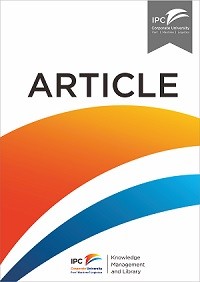Article
Understanding Environmental Influence on Human Service Organizations
This study addresses the impact of the external environmental context of individual organizations on their internal structures and service configurations, as they attempted to adapt to a changing political economy, via an examination of a portion of the Georgia child welfare system’s response to the introduction of the principles of managed care. Based, in part, on Hasenfeld’s (1992) notion that institutional and political economy perspectives are the most important theoretical approaches to understanding external influence on the service delivery systems of human services organizations, the current study presents conceptual and analytical models, which also include network theory. A survey instrument was administered to assess Chief Executive Officers’ and Managers’ perceptions of the influence of external, political and economic, institutional, and network influences on their organizations’ decisions to adopt managed care principles. Regression analyses on the index scores for these four variables provided limited support for political economy theory and network theory as significant predictors for the adoption of managed care principles.
Ketersediaan
Informasi Detail
- Judul Seri
-
Administration in Social Work
- No. Panggil
-
ATC MG JOH m
- Penerbit
- Carolina : ROUTLDGE., 2006
- Deskripsi Fisik
-
29 p.
- Bahasa
-
English
- ISBN/ISSN
-
1544-4376
- Klasifikasi
-
MG
- Tipe Isi
-
-
- Tipe Media
-
-
- Tipe Pembawa
-
online resource
- Edisi
-
Vol. 30(4) 2006
- Subjek
- Info Detail Spesifik
-
-
- Pernyataan Tanggungjawab
-
Johnny M.
Versi lain/terkait
Lampiran Berkas
Komentar
Anda harus masuk sebelum memberikan komentar

 Karya Umum
Karya Umum  Filsafat
Filsafat  Agama
Agama  Ilmu-ilmu Sosial
Ilmu-ilmu Sosial  Bahasa
Bahasa  Ilmu-ilmu Murni
Ilmu-ilmu Murni  Ilmu-ilmu Terapan
Ilmu-ilmu Terapan  Kesenian, Hiburan, dan Olahraga
Kesenian, Hiburan, dan Olahraga  Kesusastraan
Kesusastraan  Geografi dan Sejarah
Geografi dan Sejarah